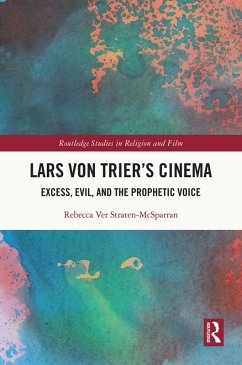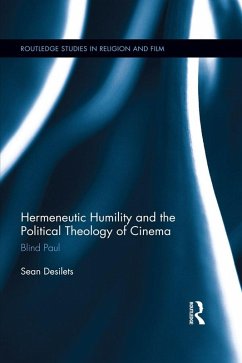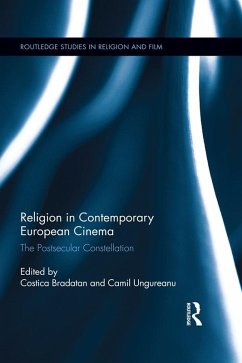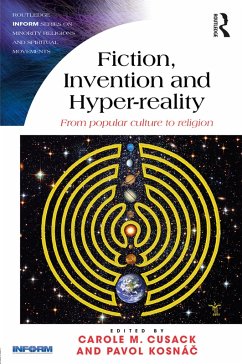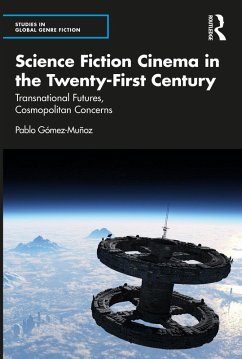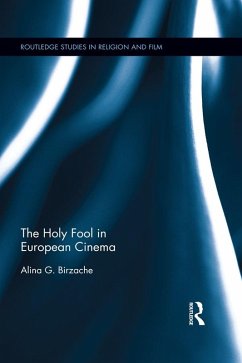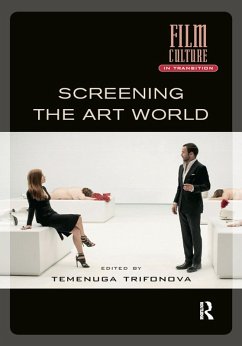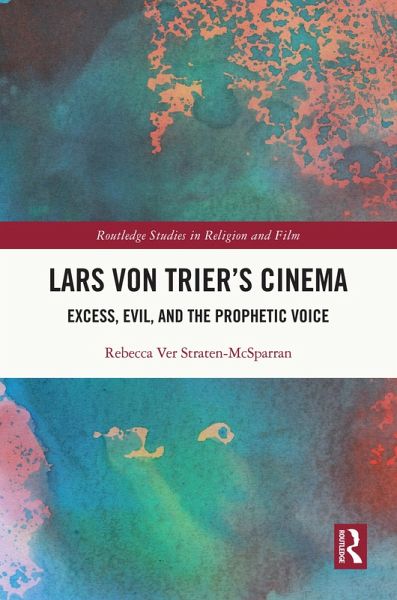
Lars von Trier's Cinema (eBook, PDF)
Excess, Evil, and the Prophetic Voice
Versandkostenfrei!
Sofort per Download lieferbar
39,95 €
inkl. MwSt.
Weitere Ausgaben:

PAYBACK Punkte
20 °P sammeln!
This book offers a bold and dynamic examination of Lars von Trier's cinema by interweaving philosophy and theology with close attention to aesthetics through style and narrative. It explores the prophetic voice of von Trier's films, juxtaposing them with Ezekiel's prophecy and Ricoeur's symbols of evil, myth, and hermeneutics of revelation.The films of Lars von Trier are categorized as extreme cinema, inducing trauma and emotional rupture rarely paralleled, while challenging audiences to respond in new ways. This volume argues that the spiritual, biblical content of the films holds a key to un...
This book offers a bold and dynamic examination of Lars von Trier's cinema by interweaving philosophy and theology with close attention to aesthetics through style and narrative. It explores the prophetic voice of von Trier's films, juxtaposing them with Ezekiel's prophecy and Ricoeur's symbols of evil, myth, and hermeneutics of revelation.
The films of Lars von Trier are categorized as extreme cinema, inducing trauma and emotional rupture rarely paralleled, while challenging audiences to respond in new ways. This volume argues that the spiritual, biblical content of the films holds a key to understanding von Trier's oeuvre of excess. Spiritual conflict is the mechanism that unpacks the films' notorious excess with explosive, centrifugal force.
By confronting the spectator with spiritual conflict through evil, von Trier's films truthfully and prophetically expose the spectator's complicity in personal and structural evil, forcing self-examination through theological themes, analogous to the prophetic voice of the transgressive Hebrew prophet Ezekiel, his prophecy, and its form of delivery. Placed in context with the prophetic voices of Dante, Milton, Dostoyevsky, O'Connor, and Tarkovsky, this volume offers a theoretical framework beyond von Trier. It will be of great interest to scholars in film studies, film and philosophy, film and theology.
The films of Lars von Trier are categorized as extreme cinema, inducing trauma and emotional rupture rarely paralleled, while challenging audiences to respond in new ways. This volume argues that the spiritual, biblical content of the films holds a key to understanding von Trier's oeuvre of excess. Spiritual conflict is the mechanism that unpacks the films' notorious excess with explosive, centrifugal force.
By confronting the spectator with spiritual conflict through evil, von Trier's films truthfully and prophetically expose the spectator's complicity in personal and structural evil, forcing self-examination through theological themes, analogous to the prophetic voice of the transgressive Hebrew prophet Ezekiel, his prophecy, and its form of delivery. Placed in context with the prophetic voices of Dante, Milton, Dostoyevsky, O'Connor, and Tarkovsky, this volume offers a theoretical framework beyond von Trier. It will be of great interest to scholars in film studies, film and philosophy, film and theology.
Dieser Download kann aus rechtlichen Gründen nur mit Rechnungsadresse in A, B, BG, CY, CZ, D, DK, EW, E, FIN, F, GR, HR, H, IRL, I, LT, L, LR, M, NL, PL, P, R, S, SLO, SK ausgeliefert werden.




